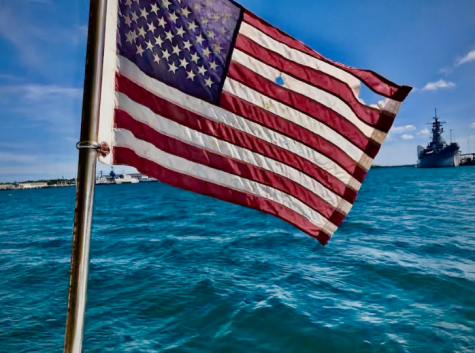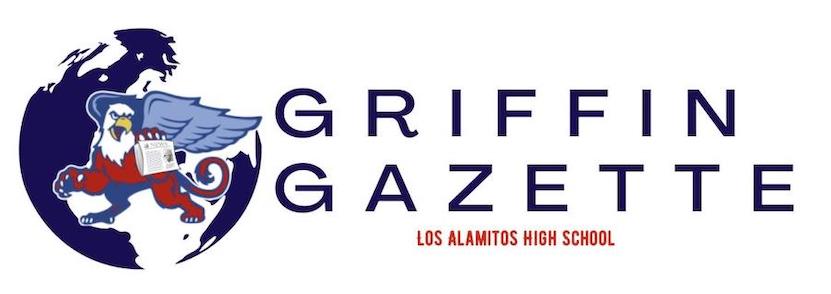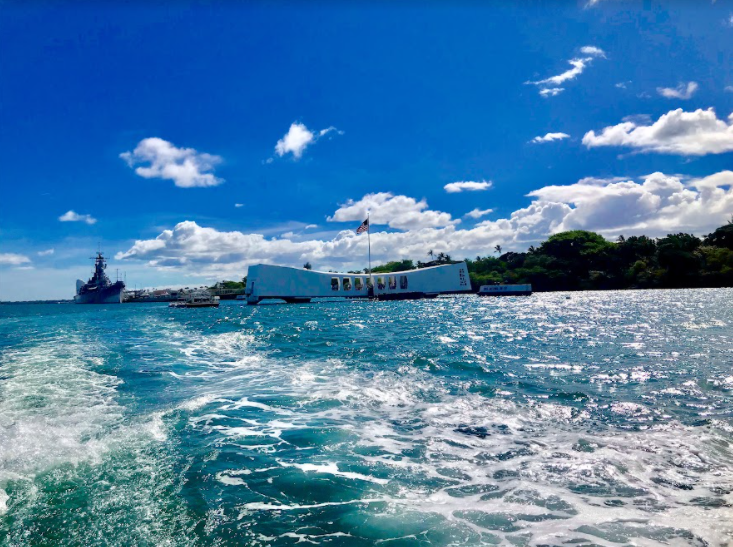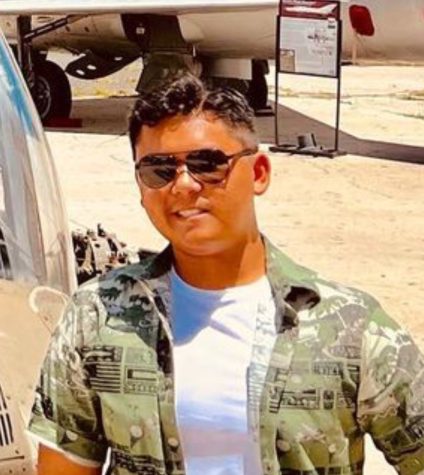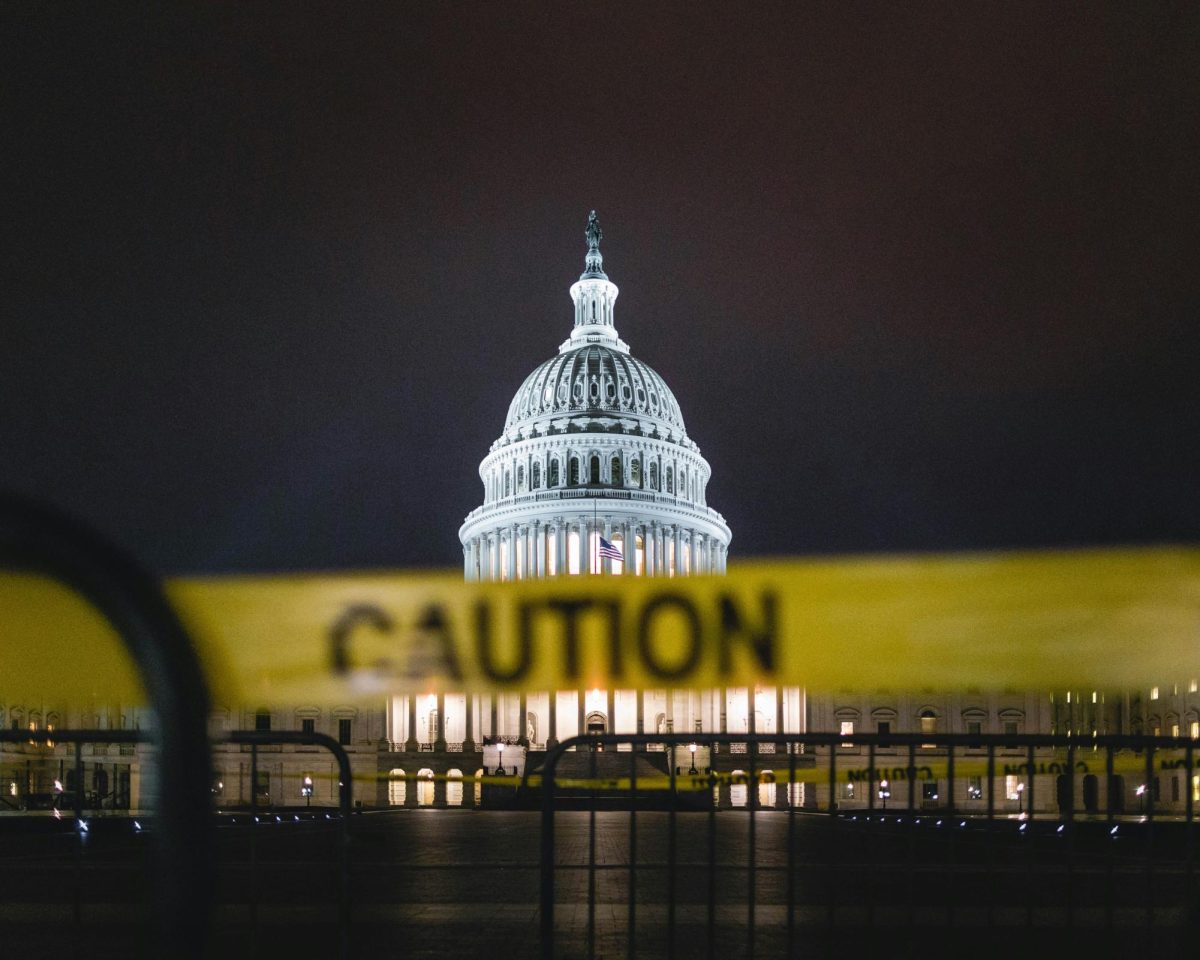Pearl Harbor Remembrance Day: Why we commemorate it
The importance of remembering Pearl Harbor and its effects
USS Arizona memorial built on top of the sunken ship in Pearl Harbor, Hawaii
December 8, 2022
LOS ALAMITOS, CA — This week, on Dec. 7, marks the 81st anniversary of the attack on Pearl Harbor. Many of us know that it was the Japanese aerial bombing of the US Navy bases in Honolulu, Hawaii that caused the US to enter the Second World War. However, many of us take for granted what this day is about and what lessons could be learned from the event.
Why did Japan attack Pearl Harbor?
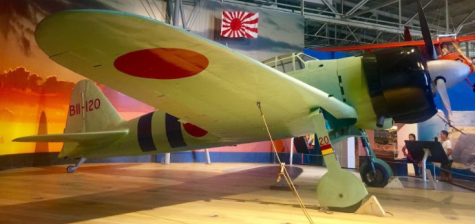
In spite of Japan’s modernized infrastructure today, the country actually lacks indigenous natural resources such as ore and oil. In addition, many of Japan’s East Asian neighbors were already colonized by British, French, Dutch, and American ambitions for expansion. This is because the main reason why the countries of East Asia were being colonized by western nations was due to their inferiority in technology and industry. Japan saw military expansion and industrial capabilities as the two elements that could prevent themselves from being colonized by the west. In order to achieve this, the natural resources that Japan lacked were required, and their way of accumulating these necessities was through conquest. The US condemned the Japanese government for its crimes against humanity during its expansion into Northern China. Because of these condemnations, Japanese officials knew that the US Navy would stop them from expanding into the rest of Asia. Since the US Navy was the main bulwark against their colonial ambitions, they believed that destroying the US Navy pacific fleet at its main base in Hawaii would greatly ease Japan’s colonial interests.
What losses were inflicted?
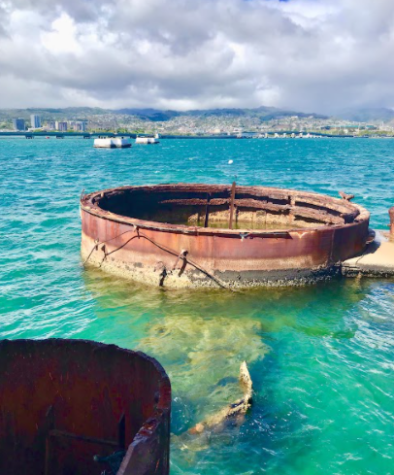
Although the Japanese did fail to destroy the entirety of the US Navy’s Pacific fleet, great wounds were inflicted on the local population. Over 2,400 sailors, marines, and army personnel were killed during the attack. Most notable, however, was the USS Arizona, which was one of the significant losses during the attack. Men within the capsizing ship suffered through prolonged amounts of suffocation. Even after the ship sank, many sailors starved to death within the vessel’s air pockets as proven by constant tapping heard from the Arizona even after it sank. In spite of the major loss of servicemen, civilian casualties of the attack are also overlooked by the public. Just like in modern times, many civilians also worked at military shipyards and airfields. In addition, civilian pilot schools frequently flew around the island of Oahu. Unfortunately, some of these civilian air crafts were shot down by Japanese fighter planes, and civilian workers at the base themselves were killed by the bombings.
Who were the heroes?
In spite of the tragedies, it is important to remember the acts of heroism that persevered during the time of distress. During the attack, a US Navy cook named Doris Miller would make history by becoming the first African American to win the Navy Cross. This award is second only to the Medal of Honor and was given to him when he displayed a true act of bravery on that day. When the USS West Virginia was hit by a Japanese torpedo, Miller helped carry his fellow sailors and comrades off the ship, including his own captain that suffered lethal wounds. After carrying the wounded men to safety, Miller was still determined to protect his fellow Americans from the attack. Due to racial prejudice at the time, many African Americans were forbidden from serving in Naval combat positions, so Miller was never trained to use a gun. He was daring enough to defy it and use a .50 caliber anti-aircraft gun to defend the harbor during the bombing. Although he never had any prior training, he was able to use the stationary weapon to shoot down 4-6 Japanese planes, which could have killed more Americans if they had remained airborne for longer.
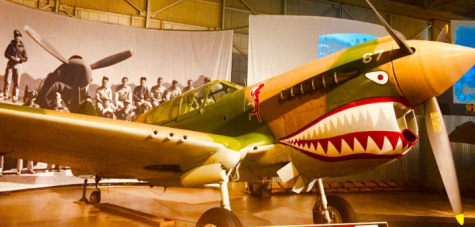
Miller was not the only serviceman to defy orders to rescue his countrymen. Pilots George Welch and Kenneth Taylor disobeyed the commands of their superiors and took to the skies in their P-40 fighter planes. Even after their superiors told them to stay grounded, the two took off yet again to defend Oahu from another wave of aircraft. The two survived the attack and won the Distinguished Service Cross for their valor.
Unlike Miller and the two pilots, not all the heroes from Dec. 7 were able to survive the attack. Many of them made the ultimate sacrifice to put the lives of others before themselves. James Ward stayed inside his sinking ship, the USS Oklahoma, to guide his fellow sailors out of the dark interior with a flashlight. Because he let others escape the sinking vessels before himself, he was trapped within his turret and went down with his ship. These fallen heroes also include immigrants as well. Croatian-born Peter Tomich helped evacuate sailors out of the sinking USS Utah. In order to stop the damaged boiler room from causing an explosion that would wipe out most of his crew, Tomich stayed inside the flooding interior to manage the problem. Although he drowned in the flooded boiler room, his prevention of the explosion allowed more men to leave the ship and survive the ordeal.
What happened as a result?
The men who perished and fought during the attack should never have their sacrifice forgotten, but they are not the only ones who we can learn lessons from. In almost every war in history, especially US history, the general public, and government obtains a form of prejudice against the people of an enemy faction. During World War 1, there was a rampant increase of anti-German sentiment, which goes the same for Islamophobia after 9/11. As a result of the new war against Japan, as many as 120,000 Americans of Japanese descent were forced into internment camps by the US government. The original intent was to root out any potential spies who worked for the Japanese government. The result, however, was the maltreatment of our own people. About 80,000 of the interned Japanese Americans were Nisei, or children of Japanese Immigrants who were born, raised, and educated in America. This meant that many of the people who were forcibly removed from their homes and shoved into internment camps were fully pledged American citizens with legal citizenship. This made them prisoners of war in their own country. They were not interned for violating any law against their own country, which they were raised to be loyal to since childhood. These innocent American citizens were imprisoned on the sole basis of being the same race as the enemy. As a result, 1,862 Japanese Americans died due to the poor conditions of the camps which lead to maltreatment and malnutrition.
As we all know, America is a nation built by brave immigrants. Many Japanese Americans were determined to disprove the negative stigma held against them. Their goals were fixated on proving that they were just as proud and patriotic as any other American. The only way for Japanese Americans to leave the internment camps was to enlist in the military, which inspired many young Nisei men to do this. These Nisei volunteers formed the 442nd Regimental Combat Team, where their valiance in the European theater of World War 2 disproved all the cowardly stereotypes held against them. Even if many of their fellow Americans held such prejudiced views against them, the courage shown by these Japanese American servicemen would lead them to make the 442nd one of the most decorated groups in US Army history.
What can you learn?
Commemorating Pearl Harbor is not a celebration of war, death, or a ritual we are traditionally obligated to do. Instead, it is a day that teaches lessons every American or non-American could use in their life. In the face of tribulation, brave men like Doris Miller, George Welch, and Kenneth Taylor defied the rules to reach their desired goals. Rather than giving in to the pessimistic views of their peers, the American Nisei after Pearl Harbor were able to see through the sea of negativity and prove their critics wrong. Pearl Harbor is a day of tragedy, but also a day that taught our nation a lesson. The heroes in this article, as well as the ones who were not, come from a plethora of contrasting backgrounds. In spite of this, their perseverance made these Americans equal in service to their country. Even if it is not Pearl Harbor, their lessons should never be erased from our history books.
